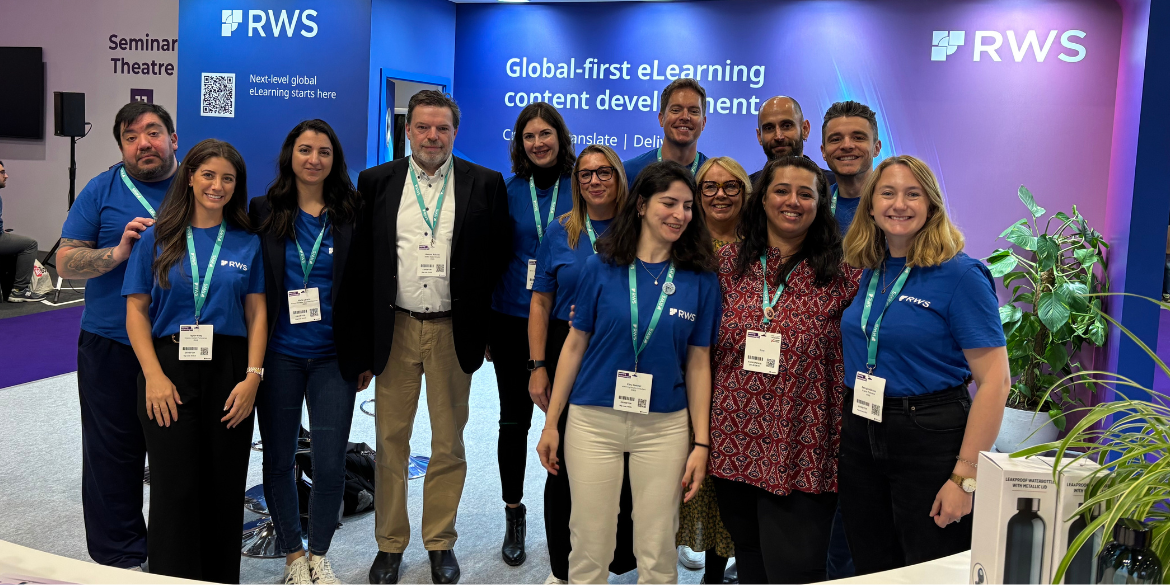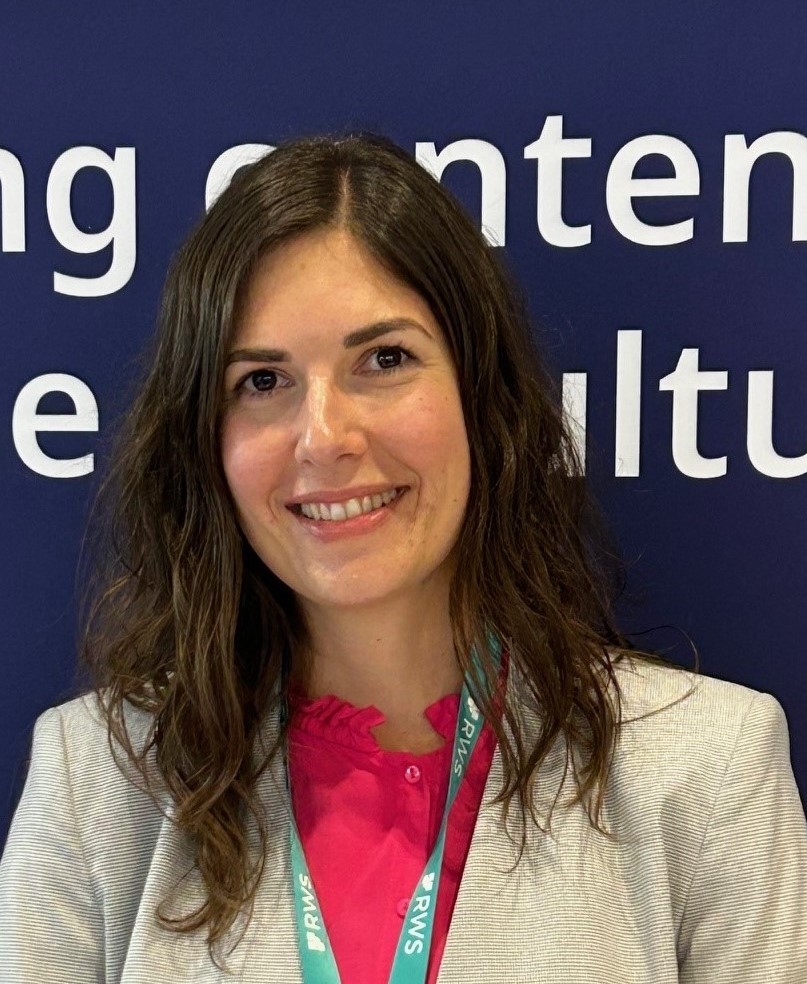What we learned at LT25: culture and AI's impact on global L&D
13 May 2025
 3 mins
3 mins

The Learning Technologies Conference 2025 in London (April 23-24) was a vibrant hub of innovation, drawing L&D professionals together to explore the future of workplace learning. RWS was proud to be at the heart of the action at ExCeL London, engaging with attendees at our booth, sharing expertise, and contributing to pivotal discussions on how culture and AI are shaping global learning strategies.
This year’s conference buzzed with key themes critical to L&D's evolution: the transformative role of AI, data and analytics; aligning skills and talent strategies with business goals; designing future-fit L&D programs; optimizing learning experiences; and championing empowerment and inclusivity.
For those who couldn't attend or wish to revisit the key insights from our sessions, here’s a recap of RWS’s contributions.
Cultural nuance meets AI innovation: insights from our headline panel
Our headline panel discussion, 'The Importance of Culture & AI for Building Impactful Global Learning’, moderated by RWS's Michael Coates, brought together diverse expertise from Jessica Aloe (Obrizum), Shani Efford-Eliraz (CBRE), and Tamara Tomek (eWyse). The session drew an audience eager to explore how to effectively blend cultural awareness with AI to scale global learning initiatives.
The core challenge discussed was clear: as organizations expand, it's not just about translating content, but ensuring this content resonates authentically across cultures to meet demanding business objectives. Here are the essential takeaways from this vibrant discussion:
AI as an enabler of inclusive and accessible global learning
The panel highlighted AI's radical potential to reshape global learning by making educational environments more inclusive and accessible. AI-driven tools can help overcome language barriers through features like real-time translation and can deliver adaptive content tailored to diverse learner profiles, significantly enhancing both reach and true inclusivity.
The critical role of cultural context for AI effectiveness
A consensus emerged: for AI-driven learning to be truly effective worldwide, cultural alignment is foundational. It’s not enough to translate; content, tools, and learning interfaces must be localized to reflect learners' cultural backgrounds, languages, and norms. This deep cultural adaptation ensures relevance and drives authentic engagement.
Personalization at scale through AI
AI's ability to personalize learning experiences at scale was a key point. Adaptive learning platforms can tailor content efficiently, addressing individual learner needs and cultural contexts while maintaining the cohesion of global learning objectives.
Human oversight: essential for ethical and nuanced AI
While AI offers powerful automation, the panel emphasized the continued necessity of human oversight. Ensuring ethical standards, addressing potential biases, and maintaining cultural sensitivity in AI-generated content requires human expertise. This 'human-in-the-loop' approach is vital for effective global learning solutions.
Navigating AI's challenges and risks in L&D
The transformative potential of AI comes with challenges. Panelists discussed the risks of misunderstandings from cultural subtleties, accents, or dialects, alongside ethical considerations around data privacy and biases in AI models. Vigilant monitoring and continuous adjustment are key to mitigating these risks.
Enhancing cross-cultural skills with AI-driven platforms
AI can also be leveraged to develop cross-cultural competencies. Self-paced training modules and insights into diverse communication styles, delivered via AI platforms, can significantly boost teamwork effectiveness within global organizations.
Streamlining global learning delivery: effortless eLearning localization
In another well-attended session, 'Effortless eLearning Localization: Simplify, Automate, and Accelerate’, RWS’s Isaura Saguer (Senior eLearning Solutions Consultant) and Sean Arjis (Customer Success Coach, FLOWSPARKS) demonstrated practical solutions for multilingual learning content.
They showcased how integrating Trados with content creation tools like FLOWSPARKS creates a seamless workflow, enabling organizations to:
- Reduce engineering effort by up to 40%
- Cut review rounds (often from three to one) through in-context functionality
- Maintain consistency across languages via automated processes
- Simplify version control for complex multilingual projects
The session provided valuable insights into overcoming common localization challenges and leveraging technology to enhance, not replace, human creativity and expertise.
The intelligent heart of global learning: moving forward from LT25
Learning Technologies 2025 underscored a fundamental truth: impactful global learning isn't just about deploying technology, it's about weaving in the very fabric of human understanding through culture and intelligent AI integration. RWS's 'Genuine Intelligence' is the key to unlocking this potential, moving organizations beyond mere translation to create truly resonant and transformative learning experiences worldwide. The future of a globally knowledgeable workforce starts with understanding. Let's build that future, together.
Don't let the insights from Learning Technologies 2025 fade. Connect with RWS's eLearning and localization experts today to turn those ideas into impactful global learning realities for your organization.
